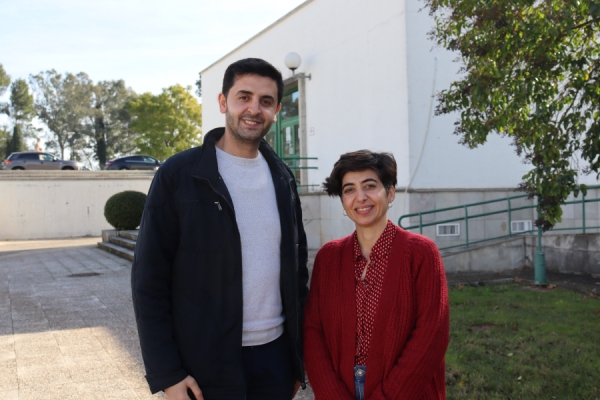The development of an app capable of identifying olive varieties using photos of olive pits is the ultimate goal of 'OliVaR,' a neural network trained with the largest photographic database of olive fruit endocarps, which has been generated by the partners of the GEN4OLIVE European project.
The tool's development has been possible thanks to the cataloguing and documentation work of five germplasm banks in different countries and to advances in Artificial Intelligence systems. The University of Cordoba has played a fundamental role, as the institution having provided the most information, with data on 63 varieties from its Germplasm Bank.
The initiative, which is part of the GEN4OLIVE European project to improve olive trees, coordinated by the Ucolivo group of the María de Maeztu Unit of Excellence – Department of Agronomy (DAUCO), involved the participation of olive germplasm banks from Morocco, Greece, Italy, and Turkey to gather more than 150,000 photos of 133 olive varieties from the Mediterranean basin. The Computer Science Department at Rome's Sapienza University was in charge of collecting the information and creating the algorithm for this tool, which proposes a new approach to identify varieties and automates the traditional morphological classification process.
This was explained by researchers Hristofor Miho and Concepción Muñoz Díez, who also stressed the accuracy demonstrated by the model, with around 90% efficiency. "It's a system of learning through trial and error, based on 'Machine Learning,' in which we train the machine to learn through its own failures," they said. The researchers explained that the more images forming the database, the more effective the system will be. The entities participating in the project have agreed on very strict protocols to unify their working methodologies and generate images allowing for optimization of the algorithm.
The result is an Artificial Intelligence tool that has been shown to be capable of detecting morphological details that escape even the human eye. After processing the data, it returns a list of the possible varieties with different degrees of compatibility with the photographed sample. This Machine Learning system will be the basis of an application that will allow growers and nurseries to easily and quickly identify the variety of olive tree they are working with. According to Ucolivo, by making it available to the entire sector as a public and free tool, it will also serve to advance general knowledge of all existing olive varieties.
Hristofor Miho; Giulio Pagnotta; Dorjan Hitaj; Fabio De Gaspari; Luigi Vincenzo Mancini; Georgios Koubouris; Gianluca Godino; Mehmet Hakan; Concepción Muñoz Diez. “OliVaR: Improving olive variety recognition using deep neural networks”, Computers and Electronics in Agriculture, 216. Received August 2023; Received in revised form November 2023; Accepted December 2023. https://doi.org/10.1016/j.compag.2023.108530


